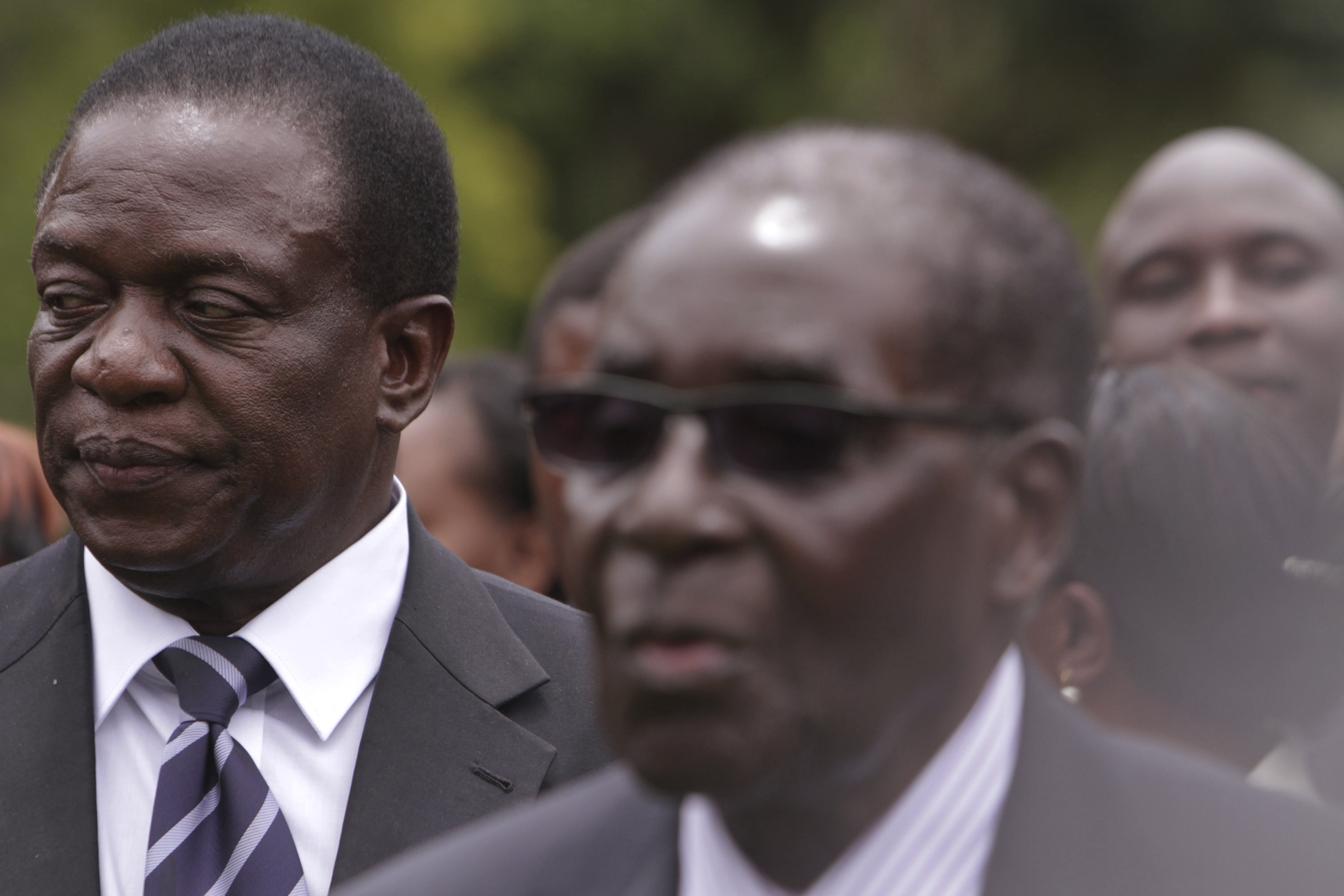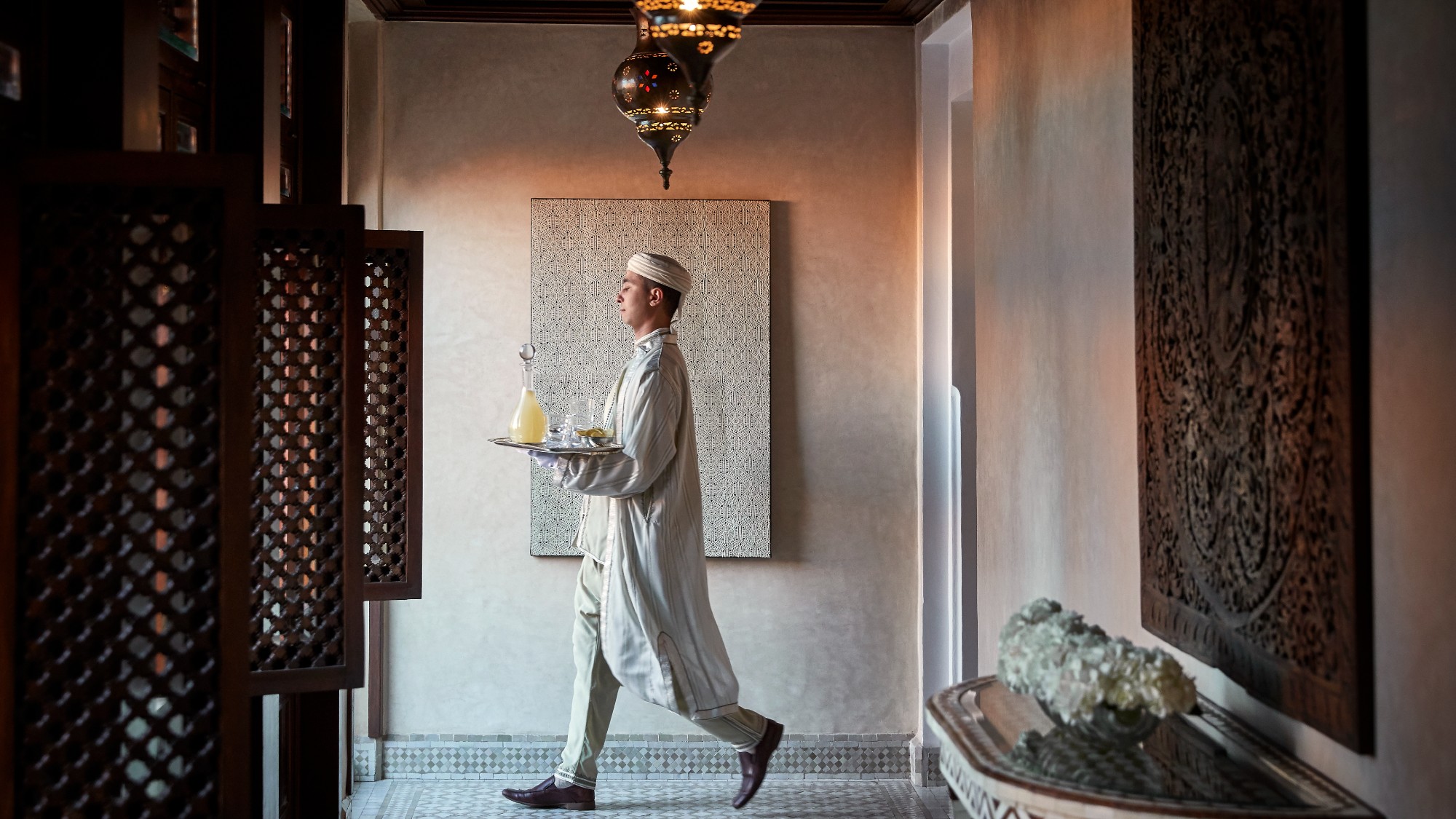Why Zimbabwe's next dictator will be even worse than Mugabe
Zimbabwe is going to get much, much worse


Chaos reigns in Zimbabwe.
Last week, the military announced that it was taking over the country, and that it would seek to oust Robert Mugabe, the aging strongman who has wrecked one of Africa's most beautiful countries through tyranny and insane economic mismanagement, and return it to constitutional government.
But today, Mugabe is still president, at least in name. The 93-year-old strongman gave a speech on Sunday in which he was widely expected to announce his resignation; he did no such thing. We are also told that impeachment proceedings are underway, and that Mugabe has been removed from his leadership of Zanu-PF, the ruling party. But he still insists he will see the party through its next Congress. (In Zimbabwe, an essentially Maoist regime, the head of the party is the true head of state, and the position matters more than president.)
The Week
Escape your echo chamber. Get the facts behind the news, plus analysis from multiple perspectives.

Sign up for The Week's Free Newsletters
From our morning news briefing to a weekly Good News Newsletter, get the best of The Week delivered directly to your inbox.
From our morning news briefing to a weekly Good News Newsletter, get the best of The Week delivered directly to your inbox.
It all seems so confusing. And yet, what is happening is actually quite clear.
There has long been a power struggle between Mugabe and his wife, Grace, who is more than 30 years his junior and a power-broker in her own right, and an erstwhile ally, Emmerson Mnangagwa, over which of them will succeed Mugabe. Earlier this month, Mugabe fired Mnangagwa from his job as vice president — by all accounts on Grace's say-so, and paving the way for her to succeed her husband. Mnangagwa fled to South Africa, and appears to have orchestrated the coup d'état, led by his close ally, Constantino Chiwenga, the head of the military.
Now Mnangagwa has returned, and is calling for Mugabe to "accept the will of the people" by stepping down. Clearly, he calls the shots.
He may be interested in maintaining the appearance of a graceful transition, but unless something dramatic happens, the coup is effectively over, and Mnangagwa will be the new dictator of Zimbabwe. Grace Mugabe and her close allies have been fired from Zanu-PF, and she is reported to be in exile in Namibia.
A free daily email with the biggest news stories of the day – and the best features from TheWeek.com
The Mugabes have lost. Mnangagwa has won.
So who is Mnangagwa?
He was involved in Mugabe's Zimbabwe rebellion from the time he was a teenager. He rose through the rebellion as Mugabe's bodyguard and then through the Zimbabwe regime as his intelligence chief and enforcer. He received his training in the dark arts of political repression in China in the era of Mao. His nickname is "the Crocodile."
Once Mugabe took over Zimbabwe, Mnangagwa orchestrated a campaign known as Gukurahundi, which involved the massacre of tens of thousands of members of the Ndebele ethnic group, in order to destroy the power base of Mugabe's main rival, Joshua Nkomo, a Ndebele (Mugabe and Mnangagwa are Shona). The massacres, which lasted for several years, were carried out by Zimbabwe's North Korea-trained Fifth Brigade, notorious for its brutality, and overseen by Mnangagwa as head of the country's spy and domestic enforcement apparatus. (Mnangagwa denies this, something absolutely nobody believes.) During Gukurahundi, victims were reportedly made to dance over the corpses of their loved ones while singing songs of praise to the government.
Not to put too fine a point on it, but Mnangagwa is a monster.
While Mugabe is flamboyant, Mnangagwa earned his nickname by being cold and ruthless. He has loudly supported Mugabe's agricultural "reforms" that plunged Zimbabwe into chaos and economic devastation. In anticipation of succeeding Mugabe, he has tried to sound more like a constitutionalist, and has made noises about implementing sound economic reforms.
I don't believe any of it. Predictions are hard, especially about the future. But my money is that things are about to get much worse, not better, for Zimbabwe.
Pascal-Emmanuel Gobry is a writer and fellow at the Ethics and Public Policy Center. His writing has appeared at Forbes, The Atlantic, First Things, Commentary Magazine, The Daily Beast, The Federalist, Quartz, and other places. He lives in Paris with his beloved wife and daughter.
-
 Wellness retreats to reset your gut health
Wellness retreats to reset your gut healthThe Week Recommends These swanky spots claim to help reset your gut microbiome through specially tailored nutrition plans and treatments
-
 Climate change could lead to a reptile ‘sexpocalypse’
Climate change could lead to a reptile ‘sexpocalypse’Under the radar The gender gap has hit the animal kingdom
-
 7 hotels known for impeccable service
7 hotels known for impeccable serviceThe Week Recommends Your wish is their command
-
 Why Greenland’s natural resources are nearly impossible to mine
Why Greenland’s natural resources are nearly impossible to mineThe Explainer The country’s natural landscape makes the task extremely difficult
-
 Iran cuts internet as protests escalate
Iran cuts internet as protests escalateSpeed Reada Government buildings across the country have been set on fire
-
 US nabs ‘shadow’ tanker claimed by Russia
US nabs ‘shadow’ tanker claimed by RussiaSpeed Read The ship was one of two vessels seized by the US military
-
 How Bulgaria’s government fell amid mass protests
How Bulgaria’s government fell amid mass protestsThe Explainer The country’s prime minister resigned as part of the fallout
-
 Femicide: Italy’s newest crime
Femicide: Italy’s newest crimeThe Explainer Landmark law to criminalise murder of a woman as an ‘act of hatred’ or ‘subjugation’ but critics say Italy is still deeply patriarchal
-
 Brazil’s Bolsonaro behind bars after appeals run out
Brazil’s Bolsonaro behind bars after appeals run outSpeed Read He will serve 27 years in prison
-
 Americans traveling abroad face renewed criticism in the Trump era
Americans traveling abroad face renewed criticism in the Trump eraThe Explainer Some of Trump’s behavior has Americans being questioned
-
 Nigeria confused by Trump invasion threat
Nigeria confused by Trump invasion threatSpeed Read Trump has claimed the country is persecuting Christians
